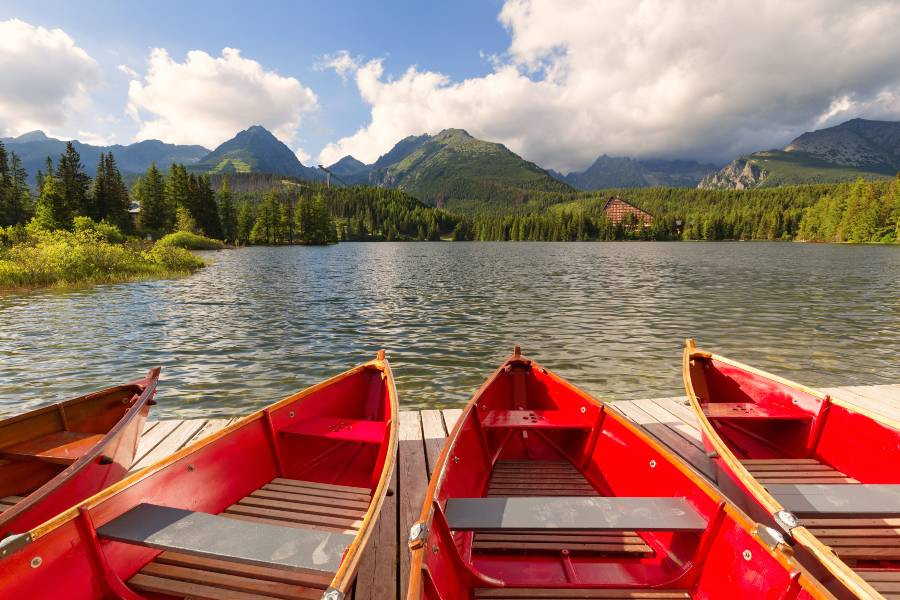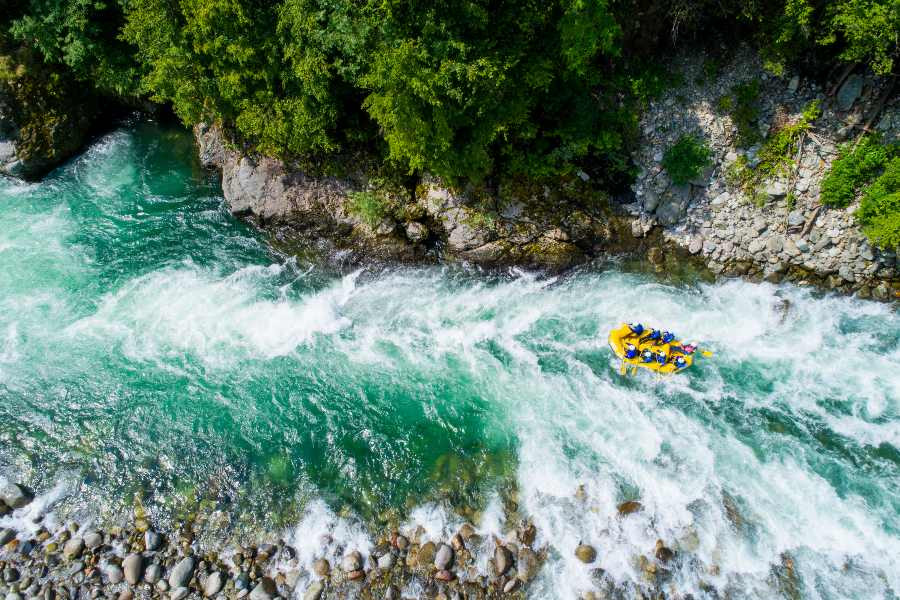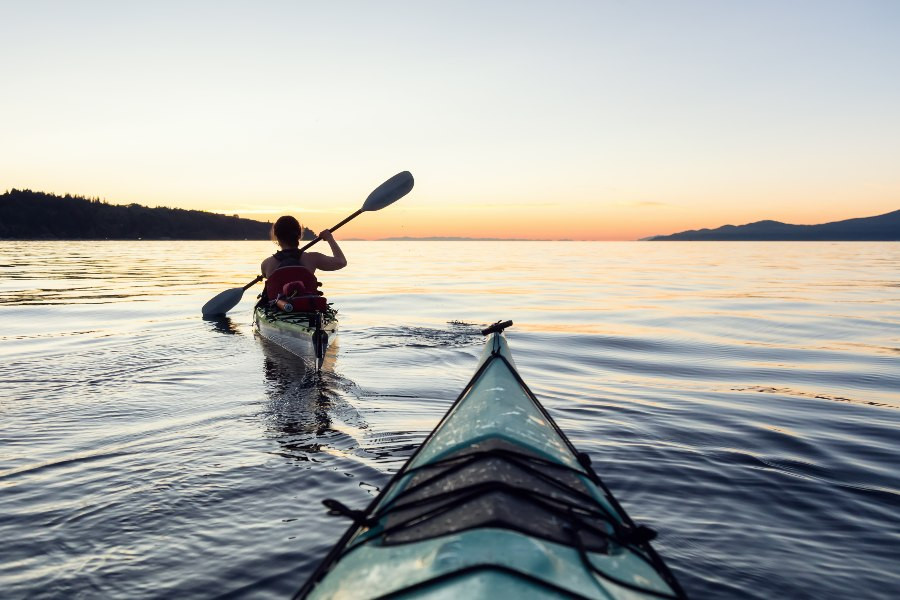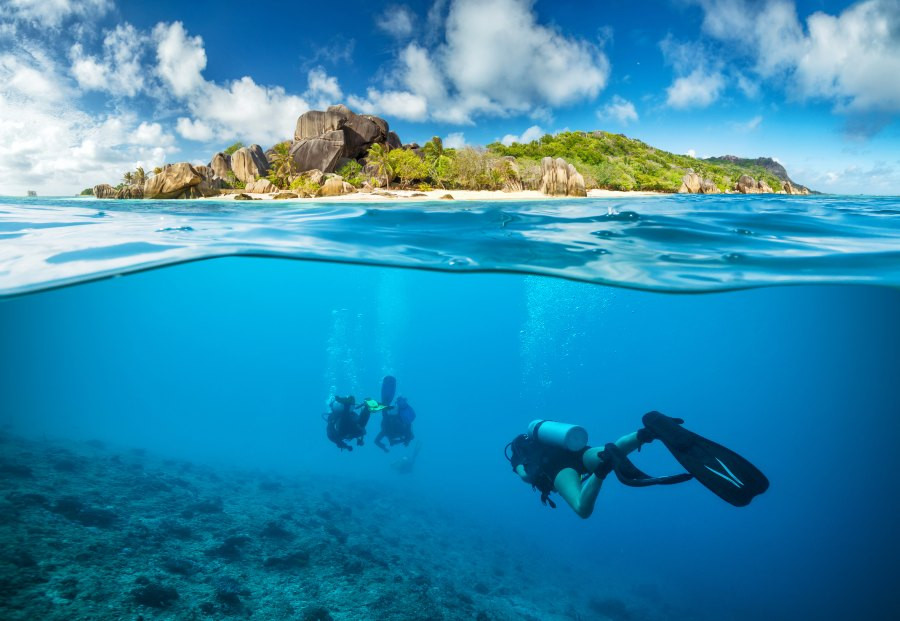Are you passionate about sustainable travel and want to explore Vietnam’s stunning landscapes responsibly? SIXT.VN offers expert advice on how to begin an eco-tourism venture that benefits both travelers and the environment. Discover how to create unforgettable experiences that minimize your carbon footprint while maximizing your positive impact on local communities through sustainable tourism practices and eco-friendly adventures.
1. Why Choose Eco-Tourism in Vietnam?
As global awareness of environmental issues grows, eco-tourism offers a compelling alternative to traditional travel. Vietnam, with its rich biodiversity and stunning natural beauty, is an ideal location for eco-tourism ventures.
Eco-tourism isn’t just a trend; it’s a necessity. Conventional travel methods often lead to significant environmental damage. By choosing eco-tourism, you can contribute positively to the conservation of Vietnam’s natural resources. As the global population grows, the impact on the climate becomes increasingly severe. Eco-tourism presents an opportunity to re-evaluate and mitigate the negative impacts of the tourism industry.
1.1. What are the Benefits of Eco-Tourism?
- Environmental Conservation: Eco-tourism supports the preservation of natural habitats and biodiversity.
- Community Development: It provides economic opportunities for local communities, fostering sustainable growth.
- Educational Opportunities: Eco-tourism educates travelers about environmental issues and cultural heritage.
- Reduced Carbon Footprint: By promoting sustainable practices, it minimizes the negative impact on the environment.
- Enhanced Travel Experience: Offers authentic and immersive experiences that connect travelers with nature and local cultures.
- Conservation Initiatives: Protecting environmental biodiversity, marine, and wildlife.
- Local Immersion: Opportunities to learn from and live like locals, fostering cultural exchange.
According to the Vietnam National Administration of Tourism, eco-tourism initiatives can lead to significant improvements in local living standards and environmental protection. Eco-tourism in Vietnam supports environmental protection by fostering a deeper understanding and respect for nature among tourists and local communities.
1.2. Why Vietnam?
Vietnam offers a unique blend of natural beauty and cultural richness, making it an ideal destination for eco-tourism. From the lush rice terraces of Sapa to the pristine beaches of Phu Quoc and the vibrant culture of Hanoi, Vietnam provides diverse opportunities for sustainable travel experiences.
According to a report by the General Statistics Office of Vietnam in 2023, the tourism sector contributed significantly to the country’s GDP, and eco-tourism is poised to play an even greater role in the future. This growth emphasizes the importance of sustainable practices to preserve Vietnam’s natural and cultural heritage.
 Rice fields in Sapa with locals working
Rice fields in Sapa with locals working
2. Understanding the Eco-Tourism Market in Vietnam
Before starting an eco-tourism business, it’s crucial to understand the market. This involves identifying your target audience, assessing the competition, and understanding the trends driving the industry.
2.1. Identifying Your Target Audience
- Eco-Conscious Travelers: Individuals and groups who prioritize sustainable travel options.
- Adventure Seekers: Those looking for unique and immersive experiences in nature.
- Cultural Enthusiasts: Travelers interested in learning about local cultures and traditions.
- Families: Seeking educational and environmentally friendly vacation options.
- Researchers and Students: Those traveling for academic or research purposes related to environmental studies.
2.2. Analyzing the Competition
Research existing eco-tourism businesses in Vietnam to identify gaps and opportunities. Look at their offerings, pricing, marketing strategies, and customer reviews.
2.3. Market Trends in Eco-Tourism
- Increased Demand for Sustainable Travel: More travelers are seeking eco-friendly options.
- Focus on Authentic Experiences: Travelers want immersive experiences that connect them with local cultures and environments.
- Growing Interest in Community-Based Tourism: Supporting local communities through tourism is becoming increasingly popular.
- Technological Integration: Using technology to enhance the travel experience and promote sustainability.
- Health and Wellness Focus: Combining nature experiences with wellness activities like yoga and meditation.
According to TripAdvisor, sustainable tourism searches increased by 45% in the past year, indicating a growing interest in eco-friendly travel options. This trend highlights the potential for eco-tourism businesses to thrive in Vietnam.
3. Eco-Tourism Business Ideas for Vietnam
Vietnam’s diverse landscapes and rich culture provide numerous opportunities for eco-tourism ventures. Here are some ideas to consider:
3.1. Eco-Accommodations
- Eco-Lodges: Sustainable lodging options built with local materials and designed to minimize environmental impact.
- Homestays: Partnering with local families to offer authentic cultural experiences and support community-based tourism.
- Glamping: Offering luxury camping experiences in natural settings with minimal environmental disturbance.
3.2. Nature-Based Tours
- Hiking and Trekking Tours: Guided tours through national parks and nature reserves, emphasizing conservation and environmental education.
- Bird Watching Tours: Exploring Vietnam’s diverse birdlife with expert guides, promoting awareness of avian conservation.
- Kayaking and Canoeing: Eco-friendly water activities that allow travelers to explore rivers, lakes, and coastal areas.
3.3. Cultural and Community Tours
- Village Visits: Immersive experiences in local villages, promoting cultural exchange and supporting community development.
- Handicraft Workshops: Learning traditional crafts from local artisans, preserving cultural heritage and providing economic opportunities.
- Farm Stays: Experiencing rural life on sustainable farms, learning about organic farming practices, and enjoying farm-to-table meals.
3.4. Adventure and Wildlife Tours
- Caving Expeditions: Exploring Vietnam’s stunning cave systems with experienced guides, ensuring minimal impact on the environment.
- Wildlife Safaris: Observing wildlife in their natural habitats, promoting wildlife conservation and responsible tourism.
- Scuba Diving and Snorkeling: Exploring marine ecosystems with certified dive operators, emphasizing coral reef conservation.
- Cycling and Walking Tours: Alternative transport options that reduce carbon emissions.
- Sustainable Dining Options: Promoting local and organic food to reduce environmental impact.
Research from Booking.com shows that 73% of travelers intend to make more sustainable travel choices in the next year. This trend emphasizes the growing demand for eco-friendly accommodations and tours.
 Rafting on a river in Vietnam
Rafting on a river in Vietnam
4. How to Create an Eco-Tourism Business Plan in Vietnam
A well-crafted business plan is essential for the success of any eco-tourism venture. Here are the key components:
4.1. Executive Summary
- A brief overview of your business, its mission, and goals.
- Highlight the unique aspects of your eco-tourism venture.
4.2. Company Description
- Detailed information about your business structure, ownership, and location.
- Describe your commitment to sustainability and responsible tourism.
4.3. Market Analysis
- Analysis of your target market, competition, and industry trends.
- Identify opportunities and challenges in the eco-tourism market.
4.4. Products and Services
- Detailed description of your eco-tourism offerings.
- Highlight the sustainability aspects of each product or service.
4.5. Marketing and Sales Strategy
- Outline your marketing plan, including online and offline strategies.
- Describe your sales process and customer service approach.
4.6. Management Team
- Information about your team’s experience and expertise.
- Highlight your commitment to sustainable business practices.
4.7. Financial Projections
- Detailed financial forecasts, including start-up costs, revenue projections, and profitability analysis.
- Include funding sources and investment strategies.
4.8. Operational Plan
- Detailed description of your day-to-day operations.
- Include logistics, staffing, and environmental management practices.
According to the Global Sustainable Tourism Council (GSTC), a comprehensive business plan should include measurable sustainability indicators to track and improve environmental performance. This ensures that your eco-tourism business remains committed to its sustainability goals.
5. Eco-Tourism Business Essentials: Registration, Licensing, and Insurance
Starting an eco-tourism business requires several legal and administrative steps. Here’s what you need to know:
5.1. Registering Your Business
- Choose a business structure (sole proprietorship, partnership, or corporation).
- Register your business with the local authorities.
- Obtain a business registration certificate.
5.2. Naming Your Business
- Choose a name that is memorable, descriptive, and reflects your eco-tourism values.
- Ensure that the web domain is available.
- The name should capture what you offer.
5.3. Obtaining Licenses and Permits
- Obtain the necessary licenses and permits to operate your eco-tourism business.
- This may include tour operator licenses, environmental permits, and safety certifications.
5.4. Opening a Business Bank Account
- Separate your business finances from your personal bank account.
- Open a business bank account for tracking expenses and revenue.
5.5. Purchasing Liability Insurance
- Protect your business against risks by purchasing liability insurance.
- Consult with an insurance provider to determine your coverage needs.
- Some commonly required in the tourism industry are Commercial General Liability (CGL), Property Insurance, and Accounts Receivable Insurance.
The Vietnam National Administration of Tourism provides guidelines on the licenses and permits required for tourism businesses, ensuring compliance with national regulations.
 Kayaks at sunset
Kayaks at sunset
6. Designing Sustainable Eco-Tours
Creating memorable and sustainable eco-tours is key to attracting and retaining customers. Here’s how to design your tours:
6.1. Brainstorming Eco-Tourism Experiences
If a competitor offers something similar to your eco-tourism business, consider starting up a complementary activity or arranging a partnership.
6.2. Crafting Your Brand Story
- Develop a compelling narrative that details your experiences.
- Verbalize what you aim to accomplish and how you plan to do it.
6.3. Developing a Unique Selling Proposition (USP)
- Define what makes your tour stand apart from the competition.
- Showcase the benefits travelers get by booking with you.
- Ideally, your market advantage should be defined in one sentence and be easy to understand.
6.4. Pricing Your Eco-Tours
- Account for your expenses, margin, and profits.
- Evaluate your market and factor in operating costs and market comparisons.
- Remember you can always adjust pricing to make sure your tour prices cover your costs and inspire visitors to book.
6.5. Practicing Eco-Friendly Operations
- Alternative transport options: Cycling, scooters, and walking.
- Sustainable dining options: Sharing local and organic food.
- Waste Reduction: Improved maintenance & repair methods aimed at reducing waste
- Water Conservation: Installing accessible water taps and encouraging guests to bring reusable bottles
- Eco-Friendly Cleaning Products: Using eco-friendly cleaning products
7. Marketing and Promoting Your Eco-Tourism Business in Vietnam
Effective marketing is crucial for attracting customers to your eco-tourism business. Here are some strategies:
7.1. Digital Marketing
- Website: Create a user-friendly website showcasing your eco-tourism offerings and sustainability practices.
- Social Media: Use social media platforms to engage with potential customers and promote your tours.
- SEO: Optimize your website for search engines to attract organic traffic.
- Email Marketing: Build an email list and send newsletters to promote your tours and special offers.
- Online Travel Agencies (OTAs): Partner with OTAs like TripAdvisor and Booking.com to reach a wider audience.
7.2. Content Marketing
- Blog: Create informative and engaging blog content about eco-tourism, sustainability, and Vietnam’s natural and cultural attractions.
- Videos: Produce videos showcasing your tours, sustainability practices, and customer testimonials.
- Infographics: Create visually appealing infographics to communicate key information about eco-tourism and your business.
7.3. Public Relations
- Press Releases: Issue press releases to announce new tours, partnerships, and sustainability initiatives.
- Media Outreach: Contact journalists and bloggers to secure media coverage for your business.
- Partnerships: Collaborate with other businesses and organizations in the tourism industry to promote your eco-tourism offerings.
7.4. Sustainability Certifications
- Eco-labels: Obtain eco-labels and certifications to demonstrate your commitment to sustainability.
- Partnerships: Link your business with local partnership businesses.
Research from the Sustainable Travel International shows that 66% of travelers are more likely to book with a company that has a sustainability certification. This highlights the importance of obtaining certifications to build trust and attract eco-conscious customers.
 Scuba diving to create an ecotourism business
Scuba diving to create an ecotourism business
8. Launching Your Eco-Tours: Test Runs and Feedback
Before officially launching your eco-tours, it’s essential to conduct test runs and gather feedback. Here’s how:
8.1. Hosting Friends and Family
- Invite friends and family members to participate in your eco-tours.
- Gather feedback on the tour experience, sustainability practices, and overall satisfaction.
8.2. Marketing Your Eco-Tours
When marketing your tours, lead with your unique selling proposition or USP, which highlights what makes your tour business special. Aim to lead with awareness, education, and helpful content that makes it easy for guests to see why they should choose you.
8.3. Look into Eco-Certification
To help you decide whether to become certified, explore Rainforest Alliance to learn more about sustainable tourism practices.
9. Leveraging SIXT.VN for Your Eco-Tourism Business
SIXT.VN is your ideal partner for creating a seamless and sustainable travel experience in Vietnam. Here’s how SIXT.VN can support your eco-tourism venture:
9.1. Comprehensive Travel Services
SIXT.VN offers a range of services tailored to meet the needs of eco-conscious travelers, including:
- Consultation: Personalized travel itineraries that align with your interests and values.
- Airport Transfers: Safe and eco-friendly airport transfers to minimize your carbon footprint.
- Hotel Bookings: A selection of eco-friendly accommodations that meet high standards of sustainability.
- Tour Bookings: Expertly curated eco-tours that showcase Vietnam’s natural beauty and cultural heritage.
- Flight Bookings: Assistance with booking flights that minimize environmental impact.
9.2. Advantages of Using SIXT.VN
- Convenience: Easy booking and comprehensive travel support.
- Reliability: Trusted services that ensure a smooth and hassle-free travel experience.
- Sustainability: A commitment to promoting sustainable tourism practices.
- Expertise: Local knowledge and expertise to help you discover the best of Vietnam.
9.3. How to Book with SIXT.VN
- Visit the SIXT.VN website.
- Select the services you need (consultation, airport transfer, hotel booking, tour booking, flight booking).
- Customize your itinerary and preferences.
- Confirm your booking and receive instant confirmation.
Contact Information:
- Address: 260 Cau Giay, Hanoi, Vietnam
- Hotline/WhatsApp: +84 986 244 358
- Website: SIXT.VN
10. FAQ: Starting an Eco-Tourism Business in Vietnam
10.1. What is eco-tourism?
Eco-tourism is responsible travel that conserves the environment and improves the well-being of local people.
10.2. Why should I start an eco-tourism business?
Eco-tourism is a growing market with increasing demand for sustainable travel options. It offers the opportunity to contribute positively to environmental conservation and community development.
10.3. What are the key components of an eco-tourism business plan?
The key components include an executive summary, company description, market analysis, products and services, marketing and sales strategy, management team, financial projections, and operational plan.
10.4. What licenses and permits do I need to start an eco-tourism business in Vietnam?
You may need a business registration certificate, tour operator license, environmental permit, and safety certifications.
10.5. How can I market my eco-tourism business effectively?
Effective marketing strategies include digital marketing, content marketing, public relations, and sustainability certifications.
10.6. How can SIXT.VN help my eco-tourism business?
SIXT.VN provides comprehensive travel services, including consultation, airport transfers, hotel bookings, tour bookings, and flight bookings, with a focus on sustainability and convenience.
10.7. What are some popular eco-tourism activities in Vietnam?
Popular activities include hiking and trekking, bird watching, kayaking and canoeing, village visits, and farm stays.
10.8. How can I ensure my eco-tours are sustainable?
You can ensure sustainability by practicing eco-friendly operations, obtaining sustainability certifications, and partnering with local communities.
10.9. What is the role of local communities in eco-tourism?
Local communities play a vital role in eco-tourism by providing authentic cultural experiences, supporting conservation efforts, and benefiting economically from tourism.
10.10. How can I measure the success of my eco-tourism business?
You can measure success by tracking financial performance, customer satisfaction, environmental impact, and community benefits.
Final Thoughts
Starting an eco-tourism business in Vietnam is not just a business venture; it’s a commitment to preserving the country’s natural beauty and cultural heritage. With careful planning, sustainable practices, and the right partnerships, you can create a thriving eco-tourism business that benefits both travelers and the environment. Let SIXT.VN be your guide to creating unforgettable and sustainable travel experiences in Vietnam.
Start planning your eco-tourism venture today! Visit SIXT.VN for expert advice and comprehensive travel services.



